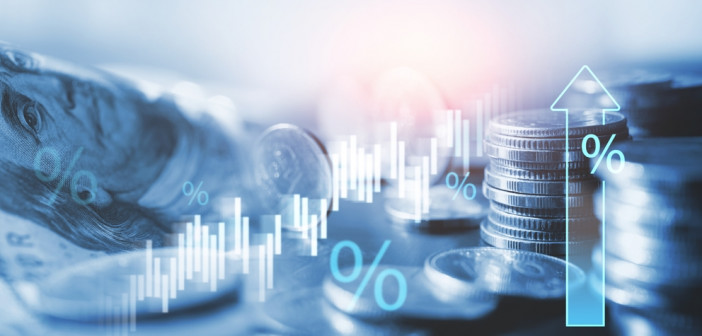Believe it or not, inflation is easing up
Even if consumers are not yet feeling the effects, inflation is, indeed, on its way down. In July 2024, “year-over-year inflation reached its lowest level in more than three years … the latest sign that the worst price spike in four decades is fading,” said AP News. Further, “consumer prices rose just 0.2% from June to July after dropping slightly the previous month,” which, comparatively speaking, “was the mildest gain since March 2021.”
Still, there are some spending categories where inflation remains stickier than others, and overall, prices today are a good bit higher than they were before the pandemic — which may be why consumers are still facing some sticker shock.
The situation with inflation could shift further soon, as “amid signs of softening in the labor market, investors expect the Fed to cut rates at its Sept. 18 meeting,” said The Washington Post. Additional cuts are expected after that.
Where will inflation rates go next?
Although “inflation eased for the fourth month in a row, to 2.9%, in July,” that figure is “not likely to dip much below the current rate” for the remainder of the year, said Kiplinger. There may be some movement, but nothing major — “it’s possible that inflation could fall to 2.7% in August and September, but it will bounce back up to 3.0% in the fourth quarter.”
Things could pick up pace in the new year though. “Expect the annual inflation rate to show a significant move towards the Fed’s target of 2% to 2.5% in the early spring of 2025,” said Kiplinger, assuming “monthly improvements materialize this summer.”
Still, there are some experts who worry whether inflation will land within the Fed’s 2% target range. In fact, said the Post, some economists “worry that the economy’s inflationary ills are not quite cured,” given that “consumer spending remains solid,” “layoffs are below pre-pandemic levels” and “second-quarter gross domestic product grew at an annual rate of 2.8%, which is faster than the 1.8% mark that the Congressional Budget Office says is sustainable.”
Are high prices on their way out?
Here is the sticking point — and “where regular people and economists might see things differently,” said NPR. While technically speaking, inflation really is coming down, “many people still feel they are paying more at the supermarket or at restaurants than they used to — and they are not incorrect.”
For one, “inflation during the pandemic rose more than many Americans had grown used to in years prior, and all the cumulative price increases continue to hit people’s wallets,” said NPR. And secondly, inflation easing does not mean that prices are no longer increasing at all — just that they are not going up as much as they once were.
All of which is to say, even if prices do not continue their alarmingly rapid upward trend, the prices we are seeing now may just be our new reality. That is not an easy pill to swallow either, given that “of the nearly 400 items BLS [Bureau of Labor Statistics] tracks, just 21 (or roughly 6%) are cheaper today than they were pre-pandemic,” said Bankrate. Eggs, for example, went up 57.6% in price from February 2020 to July 2024, while fuel oil jumped 44%.
While economic factors are unlikely to drive prices back down, consumer sentiment just might. In fact, “many companies have slowed their price increases as consumers have become more resistant to paying more,” said NPR, with at least one company even reducing prices “to where they were before the earlier hikes took effect.”
What’s the Fed likely to do?
Though Fed Chair Jerome Powell has “said he is seeking additional evidence of slowing inflation before the Fed begins cutting its key interest rate,” said AP News, “economists widely expect the Fed’s first rate cut to occur in mid-September, and will be followed by additional cuts in November and December.” At least one of those cuts is expected to be “a half-point.”
Assuming the Fed moves forward with its expected plans to slash rates this fall, that “will mark a new chapter for the economy, with implications for average Americans and businesses,” said the Post. This is due to the fact that “lower rates could offer relief to potential home buyers who have been sidelined by high mortgage rates or to businesses that have delayed investment plans.”
Should we be worried about a recession?
It is hard to ever say for sure. For instance, “economists had worried last year that the economy would be headed for a recession” — and “instead, the economy grew strongly,” said NPR.
Fears were “flaring again after the July U.S. jobs report came in worse than expected amid ongoing concerns about persistently high interest rates,” said NerdWallet.
Overall, however, “most economists still don’t expect [a recession],” said NPR.




